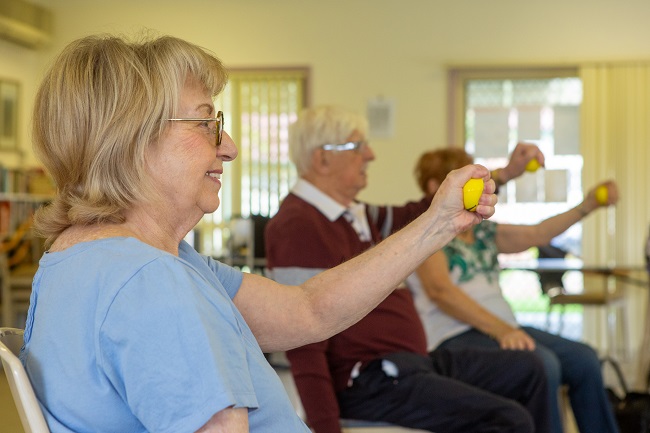What is resilience?
Let’s explore resilience – what it is and its importance to each of us.

What is resilience? “The process by which individuals are able to positively adapt to substantial difficulties, adversity or hardship.”
Resilience – is it a case of either having it or not? The Good Life spoke to Jason Nunes, a Provisional Psychologist and Doctoral candidate from the University of Wollongong's School of Psychology, about resilience as he is doing a PhD on the subject.
“Resilience is more of a process, rather than being something that is fixed,” he explains. “A person’s personality plays a part and our personal and environmental resources play a part too. The process of resilience is also linked to a person’s emotions – we are looking for an equilibrium.”
He gives the example of a person going along quite well in life and then something happens – a significant stressor or some adversity.
“This results in your resilience mechanisms kicking in, with the aim to get you back to how you were before the stressful event – back to your baseline,” he explains. “For example you might find out that you’ve lost your job. This triggers you to experience a negative emotion, due to this stressful experience. That’s when your resilience kicks in. Your resilience mechanism, including your support network, starts to work allowing you to work out a way to deal with the problem. As a result your negative emotion starts to lessen, restoring your emotional state back to its baseline level, or thereabouts.”
People may find themselves to be more resilient in different situations as they might have a better support network at home than at work, for example.
When it comes to resilience Jason says there is a lot of scientific proof to suggest that there are factors that are fixed, like parts of our personality, and others that are not, like environmental resources.
“That’s what makes resilience dynamic,” he says.

The good news is resilience is something that a person can build, so if someone is not very resilient they can change that.
Jason explains a person starts building resilience from a young age. “The way you have dealt with problems in the past and your personality also have a role to play when it comes to being resilient,” he says. “Your experiences are always changing, so the way you dealt with a problem in the past may not work every time.”
When asked about older people and resilience, Jason says lived experience and how someone has dealt with problems previously plays a large role. “Older people have lived experience and have had the opportunity to deal with issues in the past, as opposed to children who do not have the experience. So from that point-of-view age gives people a massive advantage but what it is also dependent on is a person’s mindset.
"Mindset is something we can change – from a fixed mindset [when a person thinks they cannot change] to a growth mindset [when a person thinks they can develop and change].
Getting the right support or right resources in place can help to shape a person’s mindset.”
Resilience is often associated with managing adversity, like a global pandemic.
“It’s a challenging time because unlike a job loss, where the adversity can be narrowed down to a point in time, a pandemic is a long process, with ups and downs, and it’s more like a marathon,” Jason says. “So resilience has never been more influential in our lives. And because we are all going through this together it makes it unusual and tricky – it means we are all calling on different people to support us. Some people might be negative about the situation and that can take up a lot of energy. Whereas other people might be more hopeful for the future and be positive.”
So does resilience run out?
“It’s a bit like a bulletproof vest,” Jason explains. “If we keep getting hit in the same spot, eventually something will get through.” But he also points out that resilience isn’t a silver bullet either. “It will help you get back to a level of emotion you are comfortable with but it can only do so much. It’s up to the individual to find opportunities for themselves. We need to be more than resilient. We also need to have hope, optimism and belief that things will be okay.”
Jason has been interested in resilience for some time and started his PhD in 2019.
“My PhD is on resilience and mental wellbeing in school principals,” he explains. “I was looking for a group that needed some help, and I wanted my PhD to be related to the workforce and leadership. Part of my work has included the theoretical aspect of resilience, what it is and how it works.”
Importance of good mental health
Jason says maintaining good mental health is important when it comes to helping to sustain resilience.
“It’s important to take time for yourself, to exercise, practise mindfulness and just be kind to yourself, and ask for help when you need it,” he says.
For support contact Lifeline at www.lifeline.org.au or on 13 11 14 and Beyond Blue at www.beyondblue.org.au or on 1300 224 636.

Retirement living at IRT
If you’re interested in downsizing your house and upsizing your life, IRT has more than 30 retirement villages across NSW, Qld and ACT. Find out more about the possibilities of village life and how one of our independent living communities can suit you and your unique needs.
Find out moreYou may also like
Palliative care vs end of life care: what's the difference?
What is palliative care? People think palliative care is the end of someone’s life, but there’s so much more to it.
Downsizing your home for retirement: where to begin
Have you been thinking about downsizing your home? We help you make sense of this life-changing decision that can reap so many benefits as you…


